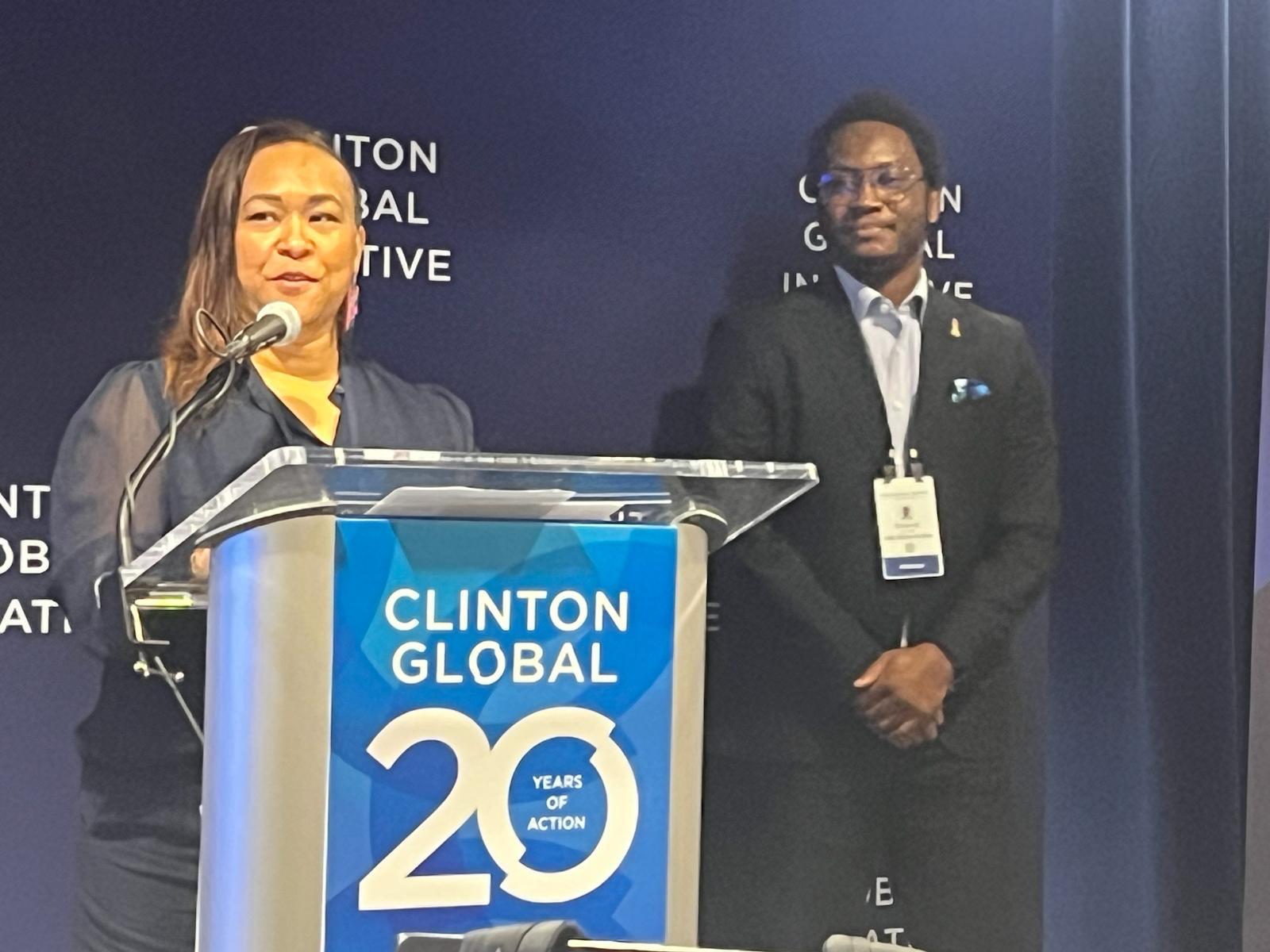On Thursday, 25 September 2025 ITPC executive director Solange Baptiste presented the Commitment To Action: A National Model for Community-Led Health Accountability at the Clinton Global Initiative. Read her full remarks below.
To understand the impact of recent foreign aid cuts in Africa, let’s use the analogy of surgery. Imagine a complex life-saving surgery is underway and the power goes out in the operating room – the lights went out, and healthcare workers were left in the dark.
When foreign aid was abruptly cut to Malawi in early 2025, clinics across the country faced devastating interruptions of HIV medicines and prevention supplies. Healthcare workers in Malawi reported confusion about new government directives, leading to cases of denying emergency ART supplies to clients—even when medicines were available—causing stress, fear, and uncertainty among people living with HIV. This situation is not unique — thousands faced treatment interruptions, stalled prevention, and loss of trust in the system.
At ITPC Global, we knew that communities themselves held the key to changing this reality. Our commitment is to work with the Ministry of Health in Malawi to embed Community-Led Monitoring (CLM) within their national health system. This means that people most affected by HIV and other health crises will not just receive services but will generate the data that would drive decisions that directly impact their lived experiences.
There are two things I want you to take away. First, CLM works. In Malawi, community monitors have already helped resolve issues like long wait times, shortages of lab services and lack of privacy in clinics. In Côte d’Ivoire, CLM data persuaded the government to abolish HIV user fees, leading to a five percent increase in treatment uptake. When communities collect and use data, health systems become more responsive, more equitable and more trusted.
Second, this commitment is about scale and sustainability. Over the next three years, we will train 300 community monitors, embed their data directly into Malawi’s national health information system and work to ensure that more than 356,000 people across three districts benefit from timely, people-centered decisions. By year three, CLM will inform national dashboards, budgets, and strategies—making Malawi an African world leader in inclusive health governance.
With our partners—the Ministry of Health, The Network of Journalists Living with HIV (JONEHA), World Vision Malawi and others—we are creating a model for how communities can co-own accountability and resilience.
By supporting this commitment, you help transform health systems from the ground up. Together, we can ensure that no one is turned away, and that every person’s voice and data shape the care they deserve.
